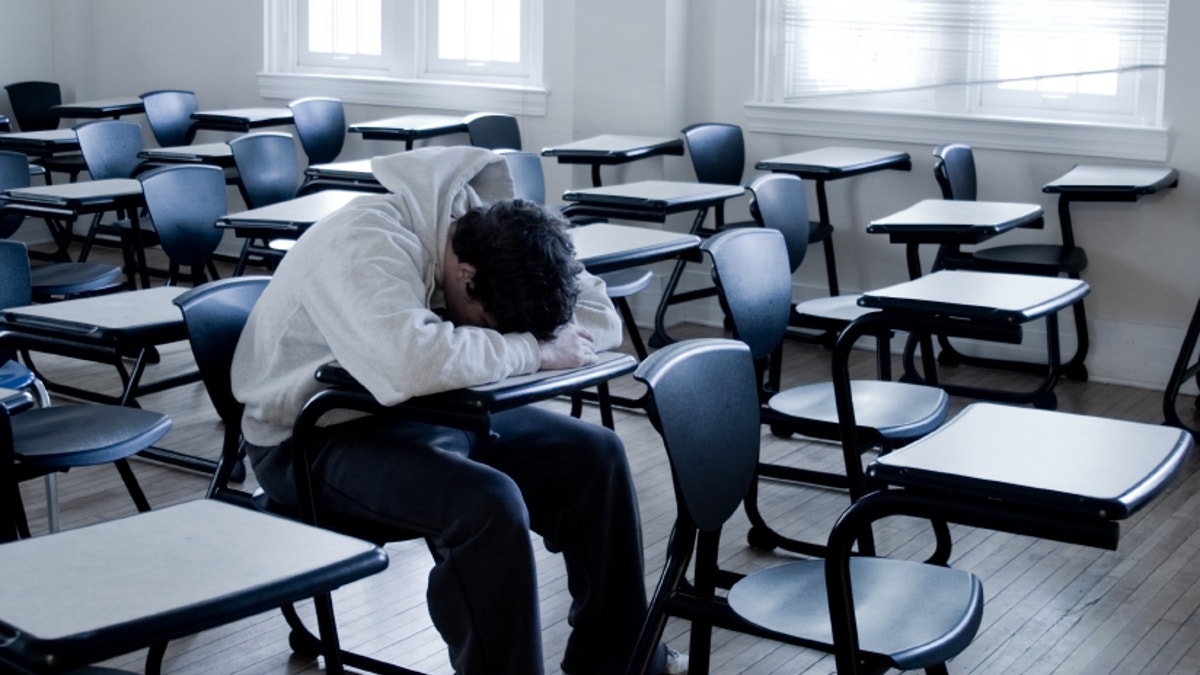
Bullied lesbian, gay and bisexual high school students are less likely to fight and attempt suicide when they feel connected to an adult at school, suggests a new study.
Bullied lesbian, gay and bisexual high school students are less likely to fight and attempt suicide when they feel connected to an adult at school, suggests a new study.
Helping these lesbian, gay and bisexual (LGB) kids develop meaningful connections with adults at school could minimize the negative impacts of cyber and school bullying, researchers say.
“The findings of our study highlight the difference teachers can make in the lives of LGB (and transgender) youth who are victims of bullying,” said Jeffrey Duong, the study’s lead author from the John Hopkins Bloomberg School of Public health in Baltimore.
Duong co-authored the paper with Catherine Bradshaw, who is an associate dean at the Curry School of Education at the University of Virginia in Charlottesville.
“Simple gestures such as reaching out to sexual minority youth who might have been victimized, and developing meaningful and supportive connections with them, might buffer them from the consequences of bullying,” Duong told Reuters Health in an email.
Duong and Bradshaw examined information from 951 self-identified LGB high school students who completed the New York City Youth Risk Behavioral Survey during the fall of 2009.
Overall, 72 percent said they were not bullied. About 8 percent said they were bullied in school, about 10 percent were bullied online and about 10 percent were being bullied both in school and online.
The researchers report that the kids’ risks for being involved in a fight and attempting suicide tended to increased with the amount they were bullied.
For example, about 72 percent of those who reported being bullied online and in school engaged in a physical fight, compared to about 36 percent of kids who said they were not bullied.
Additionally, about 44 percent of students who reported being bullied both online and in school reported suicide attempts, compared to about 20 percent of kids who weren’t bullied.
The researchers found, however, that students who didn’t feel a connection to an adult were more likely to fight and attempt suicide if they were also bullied, compared to those who weren’t bullied.
In contrast, those who were bullied and felt a connection with an adult at school were no more likely to fight or attempt suicide than students who weren’t bullied.
“The combination of victimization and not having an adult to confide in at school related to the worst outcomes,” Frank J. Elgar told Reuters Health in an email. “But having that support nullified the effect.”
Elgar, who wasn’t involved with the new study, is a researcher with the Institute for Health and Social Policy at McGill University in Montreal.
He said the message for adults is to support youths who are in the sexual minority. Adult support is only a piece of the defense against fighting and suicide attempts, however.
“This study does not suggest that teachers alone can inoculate students from such experiences - instead, these findings add to a growing body of evidence that support calls for integrated approaches to bullying prevention focusing on empathy and healthy relationships,” Elgar said.
Duong said that clubs such as gay-straight alliances have played an integral role in creating safer environments in schools. He added that parents can make their children feel safe by being present and listening to their concerns
“For those parents who might have kids who are victims of bullying, showing support and fostering connectedness such that their child can feel safe to come to them for help is critical for these youth,” Duong said.
“It's also very important for parents to remind children that bullying is not their fault,” he said, adding that many parents think bullying is just part of growing up.
Duong said it’s also important for parents to know that youth who are bullied might not always seek help. In those cases, it’s important to know the signs of bullying, such as lack of interest in going to school, decreases in academic performance or changes in mood.
He said www.stopbullying.gov is an excellent resource for help.
The study was published online in the Journal of School Health in late August but wasn't released to the public until early this month.
